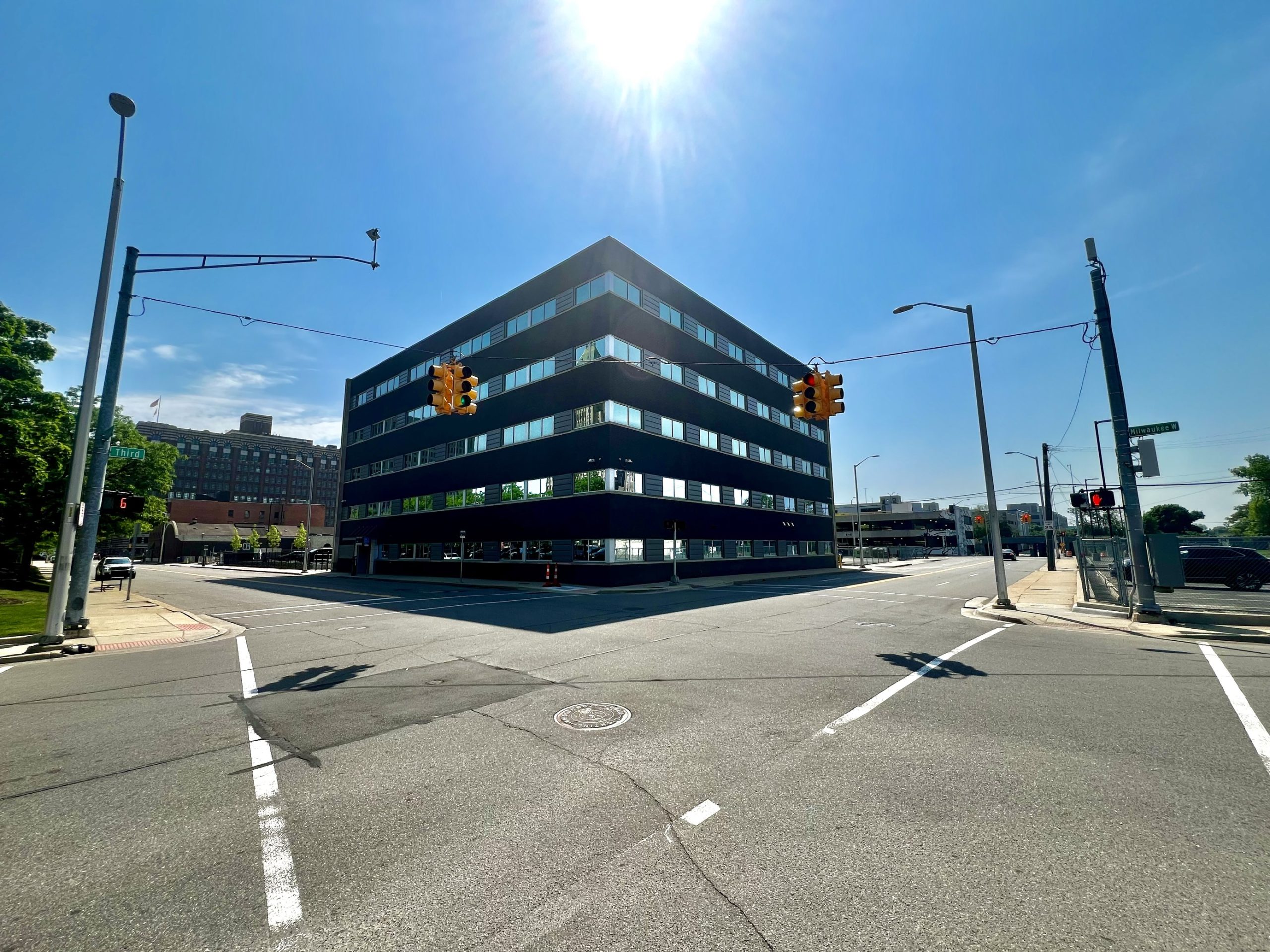707 Crisis Care Center Now Open in Detroit
Individuals experiencing a mental health crisis now have a place to receive direct specialized care. Detroit Wayne Integrated Health Network (DWIHN) officially opened the doors to the 707 Crisis Care Center at 707 W. Milwaukee Ave., Detroit.
The 707 Crisis Care Center is among the first certified crisis stabilization units in Michigan — and it has a completely new approach to providing support, says Grace Wolf, vice president of crisis services at DWIHN.
“The 707 Crisis Care Center is open 24/7/365 and really focuses on accessibility,” explains Wolf. She compares the concept of needing a referral from a primary care physician to see, for example, a foot doctor. A referral can be a barrier to those in need of mental health support. “For us, there is no formal referral process to go through. This brings down the threshold of accessibility.”
There are no residency requirements, no required socioeconomic status. Individuals do not need medical clearance from a hospital. Nursing care is provided at the center, and if an individual needs medical care that requires more intensive support, they receive a referral, Wolf explains.
And, visitors to the center are guests, not clients or patients.
Multiple units provide support for a broad range of ages
The first two floors of the building are dedicated to the Crisis Care Center and have 32 beds in total. There are 12 adult crisis stabilization beds, 14 children and family beds for guests ages 5-17 years old, and six transitional program beds that are dedicated to guests in the Building Empowered Support Transition (BEST) program — a peer-run pilot program that gives space for guests to develop self-sufficiency and wellbeing skills before discharge.
The child and family crisis unit is the first of its kind in Wayne County, says Wolf. Established guidelines for adults don’t necessarily apply to children. “This is a new process, so we will operate as a pre-admission screening unit. This means guests can walk in with no formal referral and bring their child or adolescent for a complete intake process and to determine the best next steps,” says Wolf. This could be outpatient or inpatient care or residential services.
What’s unique about this process is that children and adolescent guests can stay at the crisis center while they wait for a residential or inpatient bed to become available, if that is the appropriate next step for the guest. “While they are with us, they can receive one-on-one counseling and peer support,” she explains. “It’s the hope and goal that we can provide stabilization and discharge, but if it’s not the case, we can provide a warm transfer to the residential or inpatient facility.”
Kids need never sit in a hospital emergency department, which isn’t equipped to provide specialized support. Additionally, the 707 Crisis Center provides for natural support involvement for the family.
“When an individual receives services, we require a parent or natural guardian to stay with them. This breaks the cycle of the child going somewhere, receiving support, then going back to the environment,” says Wolf. By engaging them in the treatment process, parents can continue to support their child at home.
Robust services in a trauma-informed environment
The 707 Crisis Care Center was an existing DWIHN building that was renovated specifically for its purpose. Because the physical environment impacts mood and behavior, the design is trauma-informed and provides a safe and secure environment for guests and staff.
The center also utilizes the unique Ukeru system, an effective approach to crisis management that is the only restraint- and isolation-free program in the industry, according to DWIHN.
“We’re excited about this program,” says Wolf, who served as a trainer for Ukeru — Japanese for “to receive” — in a previous role. With a no-force-first philosophy, Ukeru utilizes blocking pads rather than physical management in the case a guest expresses violence.
“Engaging in a restraint is traumatic for staff and for guests, and this is a better way to interact and reduce trauma,” she says. The pads are fully integrated into the units and the system explained during intake, building trust and rapport with guests.
Additional design features of the 707 Crisis Care Center include a calming environment that utilizes light, cool colors, an open layout that fosters clear sightlines, seamless flooring, impact-resistant walls and ligature-free fixtures and finishes that prevent self-harm or loss of life.
A center at the forefront of crisis support
From her experience across the states of North Carolina, Maine, Virginia and Ohio, Wolf says what Michigan is developing is unique — and supportive of the needs of people here in Michigan.
“We took standards from across all the different states and added components that work best for Michiganders and built brand-new programming,” she says. “Michigan is on the forefront of crisis development.”
The 707 Crisis Center helps provide a culture shift for mental health support, Wolf adds. Crisis itself is a deeply individual status and its threshold can’t necessarily be determined by anyone but the person who is experiencing it — and the prerequisites for getting help that can often exist in the health care system are not always appropriate and valid.
“There’s a shift in thinking that there is a threshold or definition for what is considered a crisis,” she says. “Come to me and say I’m in crisis and we will help. That’s valid to you and to us. I love to see this culture shift in behavioral health services. It’s never a bad thing to ask for help.”
Learn more about Detroit Wayne Integrated Health Network’s 707 Crisis Care Center. Anyone needing services or a referral can call 313-989-9444. Or walk in and be assisted by staff. Visit dwihn.org.

